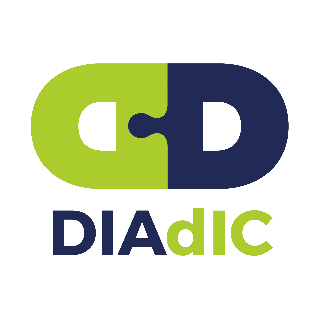Health, demographic change and wellbeing - DIAdIC
Introduction
Evaluation of Dyadic Psychoeducational Interventions for People with Advanced Cancer and their Informal Caregivers (DIAdIC): An international randomized controlled trial.
Partners:
1 VRIJE UNIVERSITEIT BRUSSEL - BE
2 ERASMUS UNIVERSITAIR MEDISCH CENTRUM ROTTERDAM - NL
3 KING'S COLLEGE LONDON - UK
4 THE QUEEN'S UNIVERSITY OF BELFAST - UK
5 UNIVERSITEIT GENT - BE
6 AZIENDA UNITA SANITARIA LOCALE DI REGGIO EMILIA - IT
7 KOBENHAVNS UNIVERSITET - DK
8 THE PROVOST, FELLOWS, FOUNDATION SCHOLARS & THE OTHER MEMBERS OF BOARD OF
THE COLLEGE OF THE HOLY & UNDIVIDED TRINITY OF QUEEN ELIZABETH NEAR DUBLIN - IE
9 UNIVERSITY COLLEGE DUBLIN, NATIONAL UNIVERSITY OF IRELAND, DUBLIN - IE
10 EUROPEAN ASSOCIATION OF PALLIATIVE CARE - BE
11 EUROPEAN CANCER PATIENT COALITION - BE
Coordinator: Prof. Joachim Cohen, jcohen@vub.be
Duration: 01.01.2019-31.12.2023
A transdisciplinary, cross-national randomized controlled trial evaluating the effectiveness and cost-effectiveness of 2 psychosocial and educational interventions (eHealth and nurse-led face-to-face) aimed at improving the quality of life and wellbeing of patients with advanced cancer and their family caregivers, evaluated through a randomized controlled trial.
On 10 January 2019, experts from nine research institutions from Belgium, Denmark, Italy, Ireland, the Netherlands and the United Kingdom have started the DIAdIC project, a large transdisciplinary project to provide better support to people with advanced cancer and their family caregivers. A diagnosis of advanced cancer has ramifications for the person with the disease as well as for the family caregiver. Good psychosocial and educational support for both can substantially reduce these and improve the quality of life of both. The international project will provide the needed evidence about which psychosocial and educational interventions are most effective.
The DIAdIC project will develop and evaluate two different methods of administering the interventions: a face-to-face method provided in the patient-caregiver dyad’s home by a specially trained professional and an eHealth self-administered tool. Both are tailored to the needs of both patients and caregivers. The interventions will address five core areas:
- supporting family involvement in care
- addressing issues of hopelessness, fears and concerns about the disease
- increasing coping effectiveness to deal with stress related to the disease and caregiving
- reducing uncertainty about the disease and treatments
- teaching self-care strategies for symptom management
Objectives
The overall aim of the DIAdIC project is to evaluate the effectiveness, cost-effectiveness and mechanisms of action of two psychosocial and educational interventions (an eHealth intervention called the web-DIAdIC and a nurse-led intervention called the face-to-face DIAdIC) aimed at improving the quality of life of patients with advanced cancer and their family caregiver. Both interventions are compared to care as usual.
These are the objectives of DIAdIC:
- To compare
1) the web-DIAdIC intervention and
2) the face-to-face DIAdIC intervention to
3) care as usual in terms of their:
- effect on the quality of life (primary outcome), appraisal of illness, uncertainty, hopelessness, coping, dyad communication, self-efficacy and healthcare resource use of patients with advanced cancer and their family caregivers (WP2-6).
- cost-effectiveness (WP7)
- effects on vulnerable subgroups (particularly women and those of lower socioeconomic status) (WP8).
- effectiveness in different healthcare systems (WP8)
2. To evaluate the implementation process of the interventions in terms of the acceptability, feasibility, usefulness as perceived by patients, family caregivers and healthcare staff in each country, and their mechanisms of action (WP9)
Role of Ghent University
- Lead WP 4: development and pilot-testing of the eHealth program for the web-DIAdIC intervention
- WP 6: RCT effectiveness study in Belgium
- participation to all other WPs
Website
Contact
Prof. Luc Deliens
Department of Public Health and Primary Care
Phone number: +32 9 332 07 76 (PA)
E-mail
Dr. Sigrid Dierickx
Department of Public Health and Primary Care
Phone number: +32 9 332 07 67
E-mail
